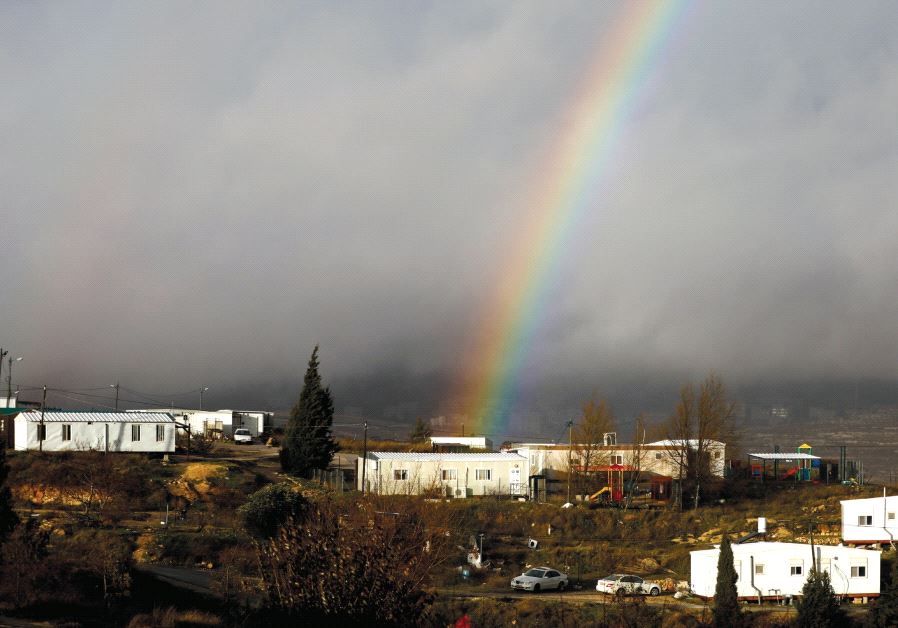Is there really a settlement construction slowdown?
Settlement leaders voice anger, but Netanyahu says new directives allow for considerable flexibility.
 A rainbow is seen over the settler outpost of Amona earlier this year(photo credit: RONEN ZVULUN / REUTERS)Updated: Read More
A rainbow is seen over the settler outpost of Amona earlier this year(photo credit: RONEN ZVULUN / REUTERS)Updated: Read More